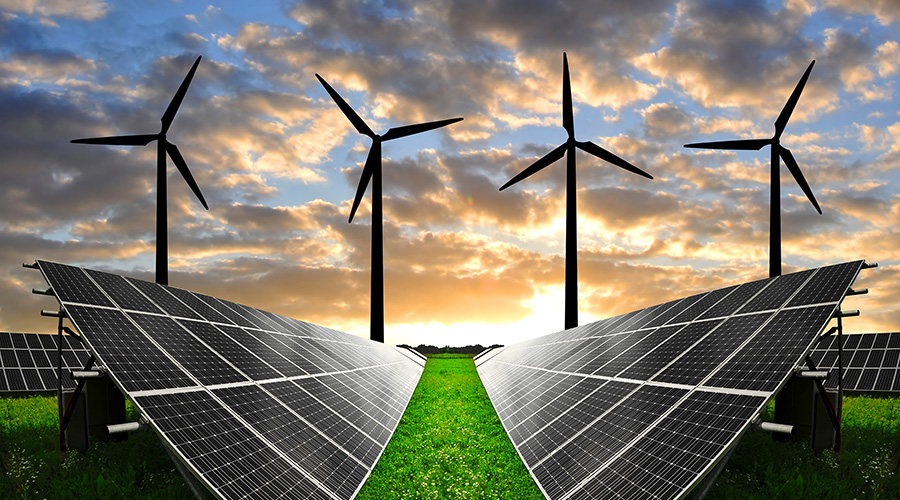The global demand for energy has been growing exponentially, and this trend is expected to continue as the world population increases and economies expand. At the same time, concerns about climate change and the negative impact of traditional energy sources have led to a growing interest in renewable energy technologies. These innovative technologies have the potential to revolutionize the way we produce and consume energy in households, and in this article, we will explore some of the most promising renewable energy technologies to watch in the coming years. To learn more about this topic and access additional resources, be sure to visit the website today.
Contents
Solar Energy
Solar energy has been around for decades, but recent advancements in technology have made it a more viable option for households. Photovoltaic (PV) cells are now more efficient and affordable, making it possible to generate electricity from sunlight at a lower cost. In addition to traditional rooftop solar panels, there are now also solar shingles and tiles that can be integrated into the design of a home.
Another promising development is the use of solar power in combination with energy storage systems such as batteries. This allows households to store excess energy generated during the day and use it during peak demand hours or when sunlight is not available. With the cost of batteries expected to continue to decline, this technology is becoming more accessible to households.

Wind Energy
Wind energy is another promising source of renewable energy that has been gaining popularity in recent years. Advances in wind turbine technology have made it possible to generate more electricity from wind power and to do so more efficiently. There are now even small-scale wind turbines that can be installed on rooftops or in backyards, making it possible for households to generate their own electricity.
Geothermal Energy
Geothermal energy is an often-overlooked source of renewable energy that has the potential to provide heating and cooling for households. This technology harnesses the energy from the earth’s heat, which is then used to heat or cool a home. While geothermal systems can be more expensive to install, they are highly efficient and can provide significant cost savings over time.
Hydrogen Fuel Cells
Hydrogen fuel cells are a newer technology that is still in the early stages of development, but they have the potential to revolutionize the way we generate and use energy in households. Fuel cells generate electricity by combining hydrogen and oxygen in a chemical reaction, with water as the only byproduct. While currently expensive, this technology has the potential to become more affordable as production and manufacturing processes improve.
Smart Grids
Smart grids are not a source of renewable energy per se, but they have the potential to revolutionize the way we use and manage energy in households. A smart grid is an advanced energy management system that uses sensors, meters, and other devices to monitor energy consumption in real-time. This allows households to optimize their energy use and reduce waste, which can lead to significant cost savings over time.
The Future of Renewable Energy in Households
While each of these technologies has its own unique advantages and challenges, they all share a common goal: to provide households with affordable, reliable, and sustainable sources of energy. In the coming years, we can expect to see continued growth and innovation in the renewable energy sector, with more households adopting these technologies as the cost of installation and maintenance continues to decline.
Of course, there are also challenges that must be addressed, such as the need for greater investment in research and development, as well as the need for supportive government policies and incentives. However, with growing public awareness and support for renewable energy, there is reason to be optimistic about the future of clean energy in households.
Conclusion
The future of household energy is likely to be driven by renewable energy technologies that are becoming more efficient, affordable, and accessible. From solar and wind power to geothermal and hydrogen fuel cells, these technologies have the potential to transform the way we generate and use energy in our homes. In addition, smart grids offer an advanced energy management system that can optimize energy consumption and reduce waste. While challenges remain, there is growing momentum and support for renewable energy, and it is clear that these technologies will play an increasingly important role in the future of household energy.
As households become more aware of the benefits of renewable energy, we can expect to see greater adoption of these technologies in the coming years. In addition to reducing reliance on traditional energy sources, renewable energy also offers significant cost savings over time. This is especially true as the cost of installation and maintenance continues to decline.
However, for renewable energy to become the dominant source of energy in households, supportive government policies and incentives are crucial. This includes investment in research and development, as well as subsidies and tax credits to make these technologies more accessible to households. Fortunately, many countries are recognizing the importance of renewable energy and are taking steps to support its growth.
The future of household energy is bright with the promise of renewable energy technologies. From solar and wind power to geothermal and hydrogen fuel cells, these innovative technologies offer a sustainable and reliable source of energy for households. As we continue to invest in these technologies and adopt supportive policies, we can expect to see a brighter and more sustainable future for household energy.




[…] essential household rules not only fosters a happy and organized home but also conserves household energy for a more sustainable lifestyle. Creating a happy and organized home environment is essential for […]
[…] offer a seamless flow and effortless navigation for occupants of all ages and abilities. Efficient household energy management is seamlessly integrated into the single floor house design, ensuring sustainability and […]